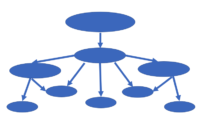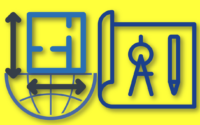
Rethinking the Context of Edtech
The sociology of education technology has encouraged us to emerge from our areas of specialization and work together as a community of practice to reconsider the context of edtech. EDUCAUSE Review
Premier Portal for Professionals Since 1995, Covering Technology-Based Education

The sociology of education technology has encouraged us to emerge from our areas of specialization and work together as a community of practice to reconsider the context of edtech. EDUCAUSE Review

The representation of knowledge is a process widely used in education for its potential to generate deep learning, metacognition, and also in mapping the student’s cognitive structure while developing a broad spectrum of thinking skills. Notwithstanding the abovementioned benefits, the development and evolution of new digital ecologies of learning is still an unexplored field for […]

Instructional designers list one of their primary obstacles as collaborating with faculty (Intentional Futures, 2016). Additionally, instructional designers experience a high degree of role misperception and struggle to advocate for clear and defined roles (Drysdale, 2018). In order to address these challenges, I created the Collaborative Mapping Model (CMM), a model of instructional design for […]

This study presents an exploratory investigation of how learning through game development can contribute to students’ academic learning and how applying game making for learning as a teaching method can be linked to subject-specific learning goals. The paper describes a project where twenty-two second grade Danish students worked with problem-based assignments that supported them in […]

Captions provide a useful aid to language learners for comprehending videos and learning new vocabulary, aligning with theories of multimedia learning. Multimedia learning predicts that a learner’s workingmemory (WM) influences the usefulness of captions. In this study, we present two eye-tracking experiments investigating the role of WM in captioned video viewing behavior and comprehension. In […]

This paper presents the use of a debate in an online asynchronous social policy course. Debate is frequently used as an instructional strategy in higher education, but little is known about the use of this tool in an online learning environment. Participants (N = 36) completed an online debate assignment and both qualitative (reflection papers) […]

This article highlights interaction within physical and virtual spaces in a higher education HyFlex learning environment with live streamed lectures and seminars. What kinds of learning spaces do we shape when we connect physical and virtual spaces? How do we interact in these spaces, and how do they affect our interaction? The perspective of ‘designs […]

This study analyzed the relationships between teaching presence, social presence and cognitive presence in online learning environments (Garrison, Anderson, & Archer, 2000), with an emphasis on examining ways in which the design of instructor presentation formats relates to student responses within discussion forums. Both quantitative and qualitative analyses were used to determine the nature of […]

Teaching and learning in higher education are being transformed through complex configurations of people, tasks, material and digital resources. Successful designs for innovative learning require understanding how these complex configurations relate to learner’s activity. This paper illustrates the application of a networked learning approach to frame the design of distance learning in higher education in […]

Students attending Indiana University are now able to combine the collaborative benefits of a traditional classroom education with the ease of access that comes with distance learning, through video conferencing technology. edscooop